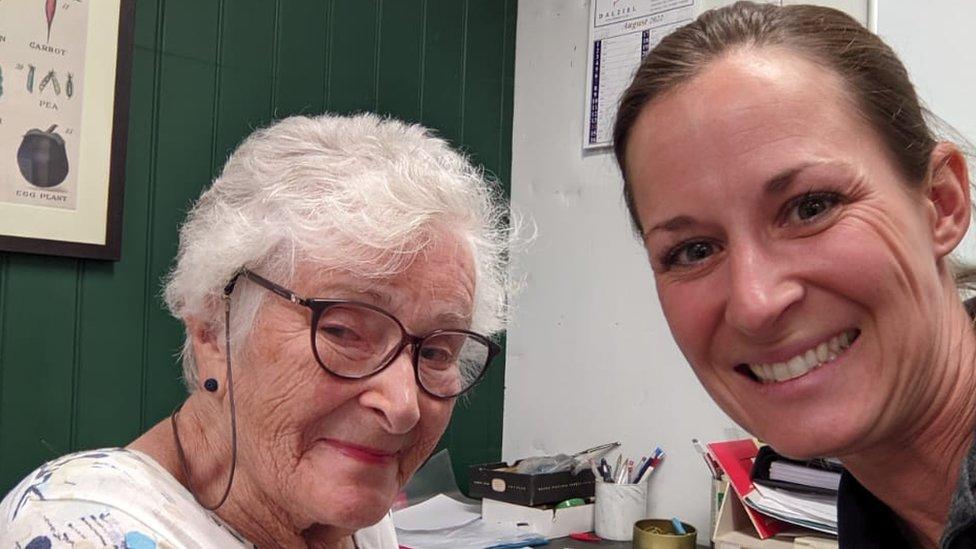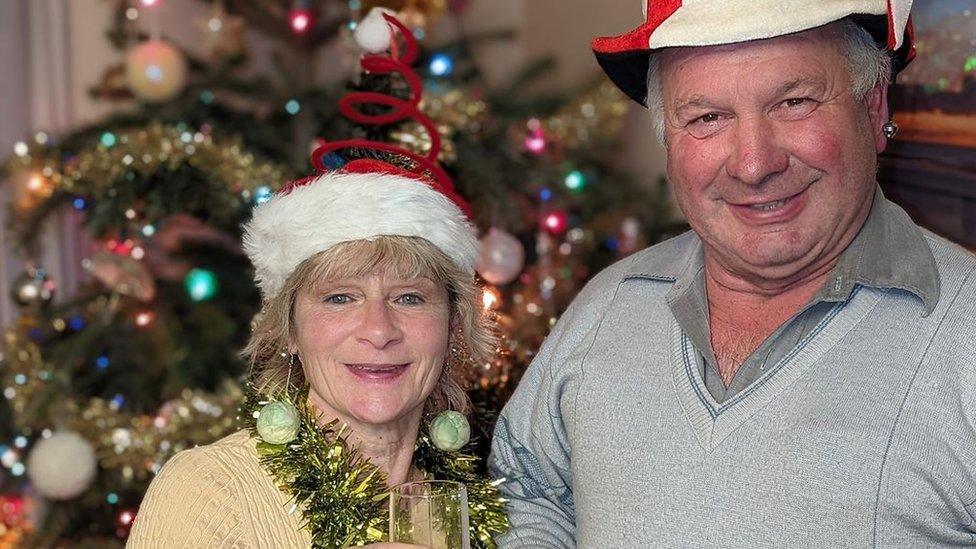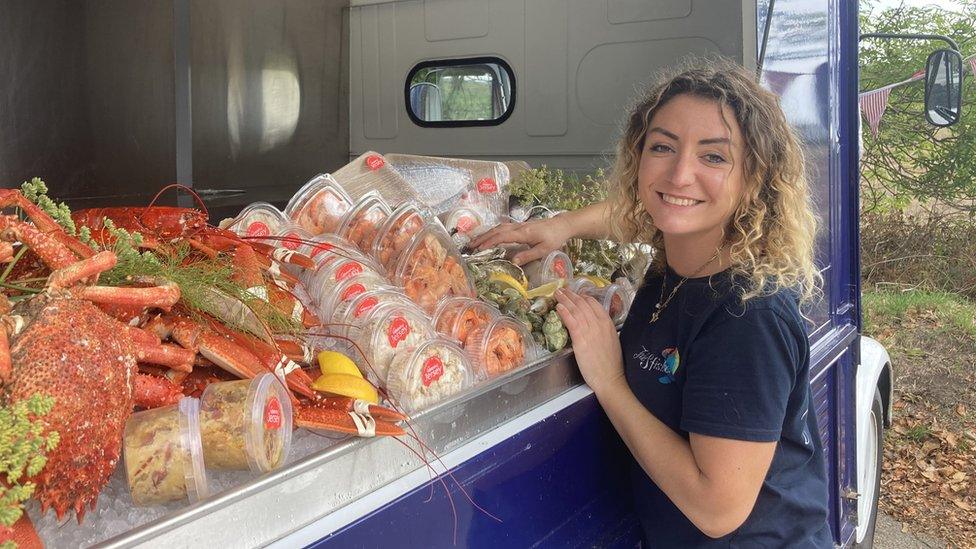Jersey women in farming and fishing talk about their experiences
- Published

Catherine Conway's grandmother comes into the Homefields office every day and helps to keep the books
Women make up 30% of Jersey's agricultural and fishing workforce, according to the 2021 census published by Statistics Jersey.
This is almost double the proportion of women in the UK's agricultural workforce.
Catherine Conway, director of Homefields fruit and vegetable wholesaler, said: "I can't tell you the amount of times that I've spoken to people on the phone, and they've said: 'Can I speak to the boss, please?'
"You're speaking to the boss… 'but you're a girl'. I've had those exact words: 'But you are a girl'. Yes, I am a girl, how can I help you!"
Christine Hellio has worked as a vegetable farmer for more than 40 years. She said that when she returned to work after having children, other farmers used to come into the fields and greet her husband without even acknowledging her presence.
"I soon put them right and in actual fact I would say that the male farmers do actually have a fair amount of respect for me now."

Christine works with her husband, Didier, on their farm
Gabby Mason, co-founder of Jade-S fisheries, believes "there's a fundamental systemic problem in our ideas of what women work as in certain industries".
Speaking about the fishing industry, she said: "I think it's a British culture kind of thing. You look at America, Australia, New Zealand, women are all over the industries - whether it's boats or in the background jobs, it is known. Typically, in Jersey and England it seems to be that it's not commonly thought of.
"When we talk about the fishing industry we often think 'man on a boat', but, actually, it could be woman on a boat, or it could be all the extra people who are doing the footwork in the background."

Gabby is one of the only women in Jersey's commercial fishing industry
UK Women in Fisheries (UKWIF) is a national organisation set up to try to correct this cultural blind spot.
Beshlie Pool is one of the founding members of UKWIF: "I feel that quite often women have to work twice as hard as men to be accepted and we don't get recognised for that additional effort because we have to prove that we're as good as they are."
She is also an executive of South Devon & Channel Shellfishermen and said there was a need to question women's presence in the data.
"I think data will always underrepresent women in general. A lot of women we come across don't yet recognise themselves as part of the workforce. They often say: 'I just do the books, I just make his packed lunches, I just keep the home functioning', but without those functional roles, the guys couldn't go to sea, couldn't catch the fish, couldn't take the fish to the market."
Jane Rueb, secretary of the Jersey Farmer's Union (JFU), also warned that what might appear as an increase in the number of women farmers locally may be more indicative of an overall decline in the industry.
She said: "The proportion of women is probably greater than it's ever been, but only because the actual number of farmers has declined more rapidly."
Mrs Rueb said this decline was worrying and regardless of gender "encouraging any farmers into farming in Jersey is a priority island-wide".
'Big shift'
Ms Mason fears it will be a "long slog" before public perception of women in farming and fishing begins to really shift, but recent events do suggest the national tide has begun to turn.
Ashley Mullenger and Isla Gale were the first women to be recognised at the Fishing News Awards, with Ashley scooping up a Fisherman of the Year accolade.
And an academic and photographic project aimed to make women farmers in Northumberland and the Scottish borders more visible.
Mrs Conway believes "in the last couple of years, especially, there definitely has been a big shift".
"People have started to realise, actually, you don't need to be a 60-year-old man to be a farmer. You can be any age, any nationality, any shape or size, any gender… just get on with it."
Updated on Tuesday 18 October, 2022: This article has been changed at the request of one of the contributors.

Follow BBC Jersey on Twitter, external and Facebook, external. Send your story ideas to channel.islands@bbc.co.uk